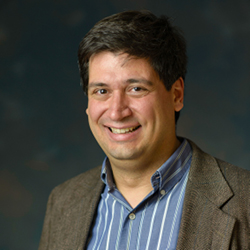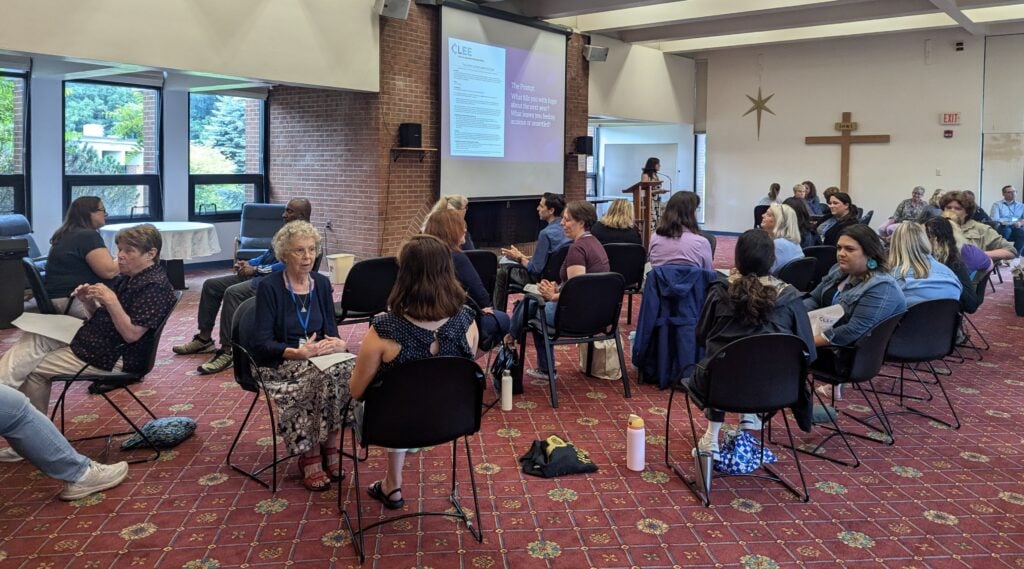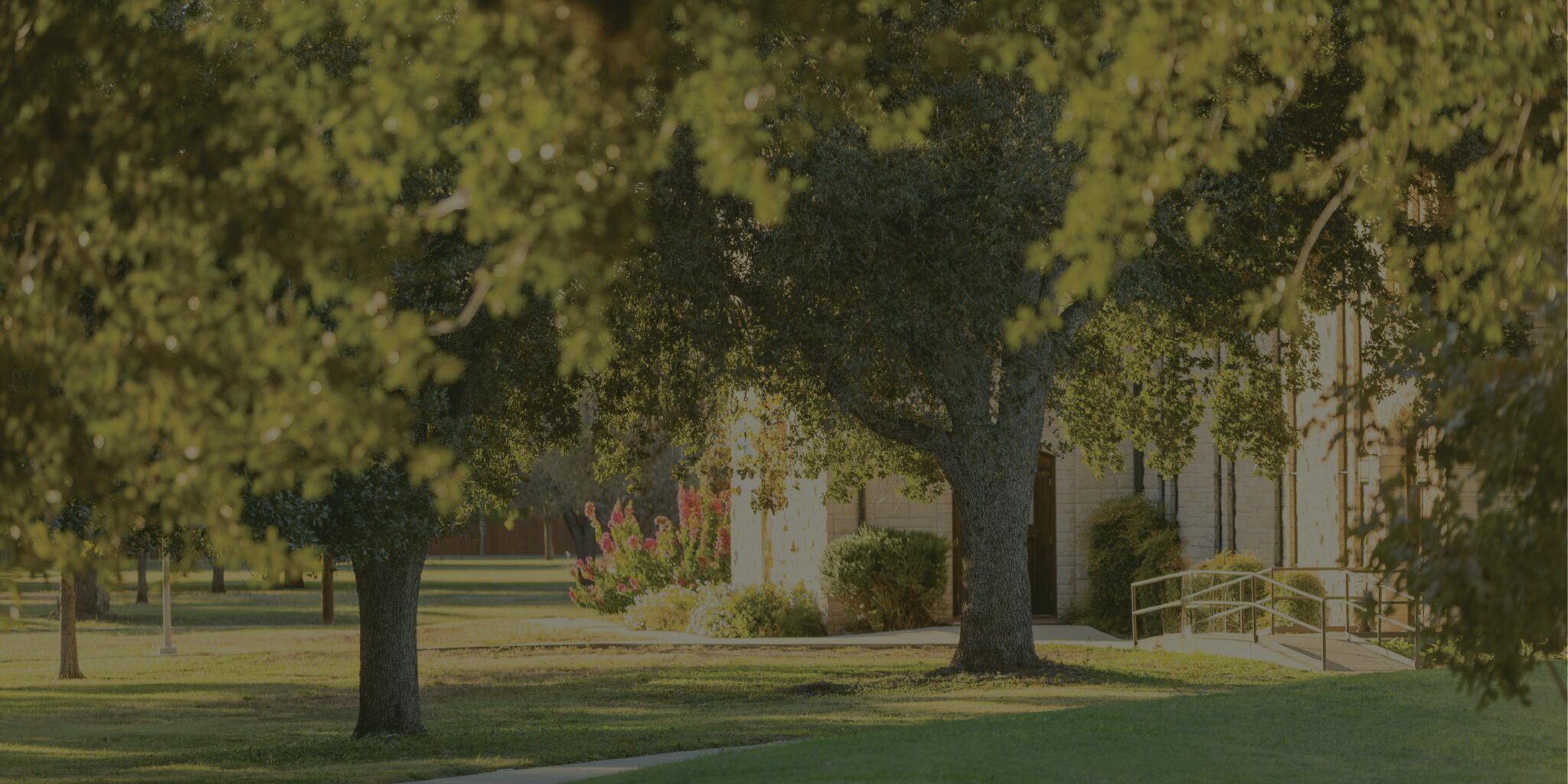Campus Spotlight
Nazareth University: Shaping a Campus Culture to Respond rather than React
By Daniel Meyers, NetVUE Chaplaincy Planning Initiative and Online Community Coordinator
The saying “culture eats strategy for breakfast” captures well the challenge that institutions face when they seek to change or chart their futures. Even the most well-articulated strategic plans may fail to shift an organization’s core identity and values. Aware of this concern, Nazareth University used its NetVUE Grant for Reframing the Institutional Saga to reanimate its founding principles and to foster a culture of responsiveness rather than reaction.

In 1924, the Sisters of St. Joseph (SSJ) founded Nazareth University to create educational opportunities for Catholic women, drawing on a history that stretches back to seventeenth-century France. Nazareth’s chaplain, Jamie Fazio, explained that the founding charism of the SSJ has two parts. “The charism,” he said, “calls us to connect neighbor to neighbor—and neighbor to God—without distinction, and to respond to the needs of the time.” The sisters developed two core practices out of this charism: “State of the Heart” and “Order of the House.” The first practice fosters self-awareness and alignment with the order’s values—a counter to today’s culture of busyness and reactivity. The second practice encourages agency over uncertainty by prioritizing action, time, and resources. Together, these two practices invite a collective curiosity about how to respond as a community to the needs of the day.
These long-standing antecedents to Nazareth University’s culture were all but forgotten until recently. Fazio, a 1997 graduate and longtime chaplain, remembered moments from the past when Nazareth began to lose touch with its identity. “We went through our adolescence and rejected our parents—the sisters—while trying to be trendy,” he said. During that period, the institution and its students lacked clarity about their roots or direction. The Saga grant helped Nazareth “rediscover who the sisters were” and realign its culture with its history to shape the future.
The grant initially proposed the writing of a book on Nazareth’s history, but faculty and staff members identified a different need and asked first to create a shared experience for their community. In response, Fazio developed a retreat titled “Responding to the Needs of the Day.” Over 100 faculty and staff members and administrators attended it in the fall of 2024; there, Fazio created space for the “State of the Heart” practice. He observed that “colleagues could engage in the practice of intentional, deep listening, which allowed for a deeper understanding of what we bring into this community.” Using the “Order of the House” practice, Fazio asked the community, “Now that we have listened and reflected, how are we being called to respond?” As a collective “house,” the retreat participants identified themes, and then committed to specific actions, to live out the SSJ charism and to respond to the needs of the day. “This practice,” reflected Fazio, “can create communal discernment that can then transition into concrete ways of action.”

The retreat’s influence has extended beyond the event itself. The core SSJ practices can surface in department meetings and classroom settings; in addition, campus leaders have used the retreat language to introduce the university in a recent accreditation report. Fazio plans to open staff senate meetings with a similar approach, and he offered a second and more in-depth retreat this past August.
Ultimately, this cultural shift has also impacted students. In a world that is too often reactive, Nazareth offers a space for people to pause, reflect, and respond proactively. “Students, faculty, and staff crave the ability to respond positively rather than to react with hostility,” Fazio said. Nazareth aims to foster a culture where, in Fazio’s words, “students learn the discernment, inquiry, discovery, and questioning skills that allow them to thoughtfully respond, rather than perpetually react.”
The gift of this Nazareth University story may not be a model that all institutions can follow, but it does provide a set of questions to consider. By remembering its history and foundational practices, Nazareth worked to reshape the culture of its campus around its authentic history and values. What is your institution’s foundational history, and what wisdom does it hold for the future? What practices—spiritual or secular—invite collective discernment? What unique values or forgotten stories could help define your campus’s next chapter?

If your institution has not yet held a NetVUE Grant for Reframing the Institutional Saga, you can learn more here.

To report a technical problem with the website, or to offer suggestions for navigation and content issues, please contact Alex Stephenson, NetVUE communications coordinator, at astephenson@cic.edu.



